Hops A-Z: E is for Equivalence
One often-overlooked brewer's skill is that of judging hop equivalence. Having crafted a recipe that delivers a particular aroma and bitterness profile, what's a brewer to do if they can't get hold of those exact hops?
If you answered "don't bother brewing it" then you need to go back to bed, wake up on the right side of it and don't forget to screw your commercial head on this time. Sometimes, the required hops just aren't available - demand outstrips supply, harvest are poor, prices are as volatile as hop oil itself, the shipment is stuck on on a freighter/warehouse dock/M62, the hops have gone bad/ran low/never been ordered in the first place. Meanwhile, a copper is waiting patiently and customers have orders to be fulfilled.
It shouldn't come as any great surprise that there's such a thing as equivalence or substitution. In some cases it's scientific, with alpha acid content and utilisation rates taken into account. It can be more subjective, comparing varietal characteristics for broad similarities.
True, some hops are so distinctive that it'd be near impossible to concoct an equivalence; nothing comes close to the funky mouldy orange of Sorachi Ace or the Sauvignon Blanc gooseberry edge of Nelson Sauvin. But to me the challenge of maintaining the hop profile of a beer is akin to the art and science of the whisky blender. Hops have a vintage all of their own, growth and maturity rates differ and so does the resultant aroma, flavour and bitterness. Managing those fluctuations, blending different hops to maintain a beer's consistency is the mark of a skilled brewer.
If you answered "don't bother brewing it" then you need to go back to bed, wake up on the right side of it and don't forget to screw your commercial head on this time. Sometimes, the required hops just aren't available - demand outstrips supply, harvest are poor, prices are as volatile as hop oil itself, the shipment is stuck on on a freighter/warehouse dock/M62, the hops have gone bad/ran low/never been ordered in the first place. Meanwhile, a copper is waiting patiently and customers have orders to be fulfilled.
It shouldn't come as any great surprise that there's such a thing as equivalence or substitution. In some cases it's scientific, with alpha acid content and utilisation rates taken into account. It can be more subjective, comparing varietal characteristics for broad similarities.
True, some hops are so distinctive that it'd be near impossible to concoct an equivalence; nothing comes close to the funky mouldy orange of Sorachi Ace or the Sauvignon Blanc gooseberry edge of Nelson Sauvin. But to me the challenge of maintaining the hop profile of a beer is akin to the art and science of the whisky blender. Hops have a vintage all of their own, growth and maturity rates differ and so does the resultant aroma, flavour and bitterness. Managing those fluctuations, blending different hops to maintain a beer's consistency is the mark of a skilled brewer.













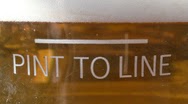
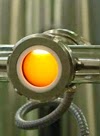
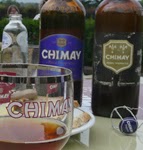
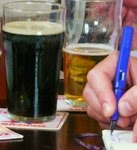


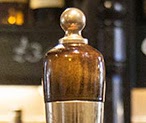

0 comments: